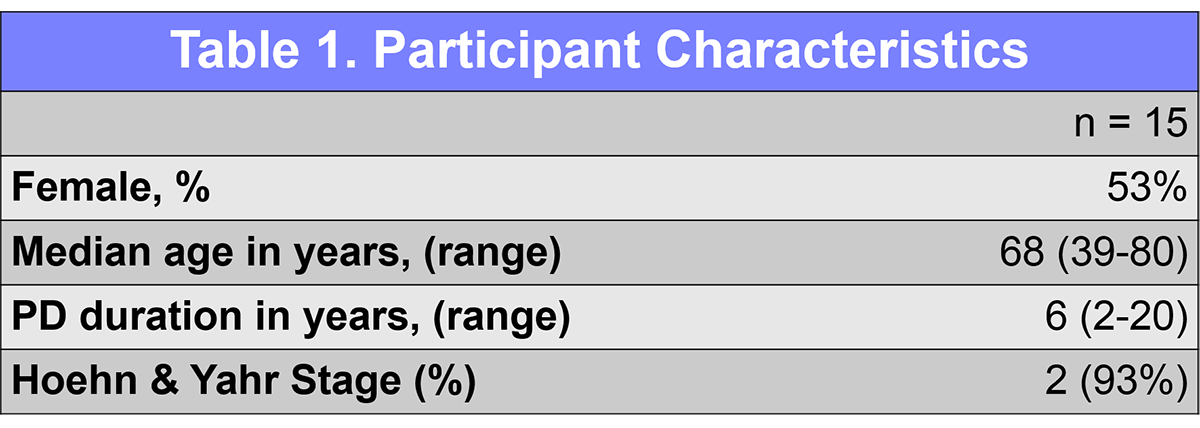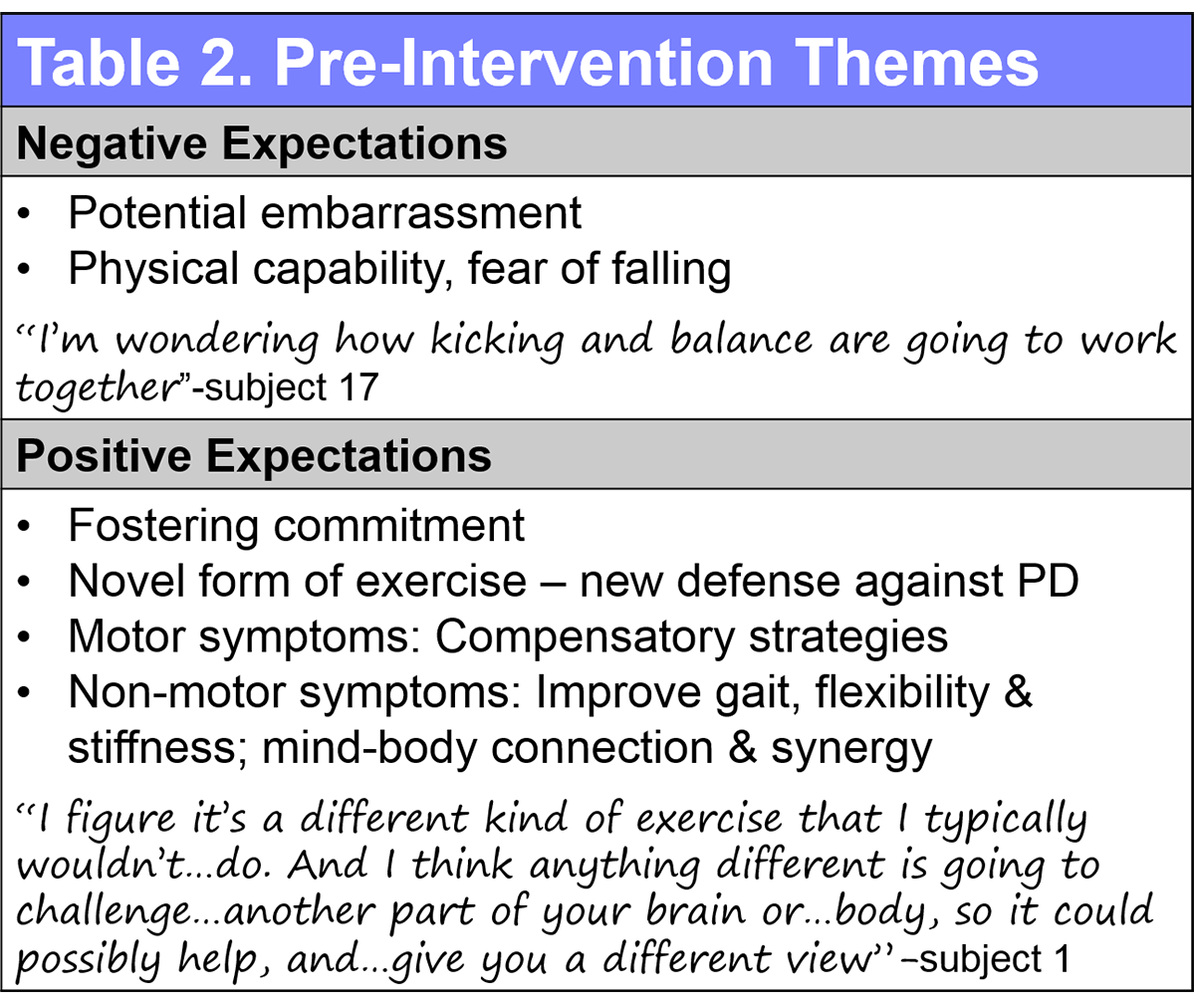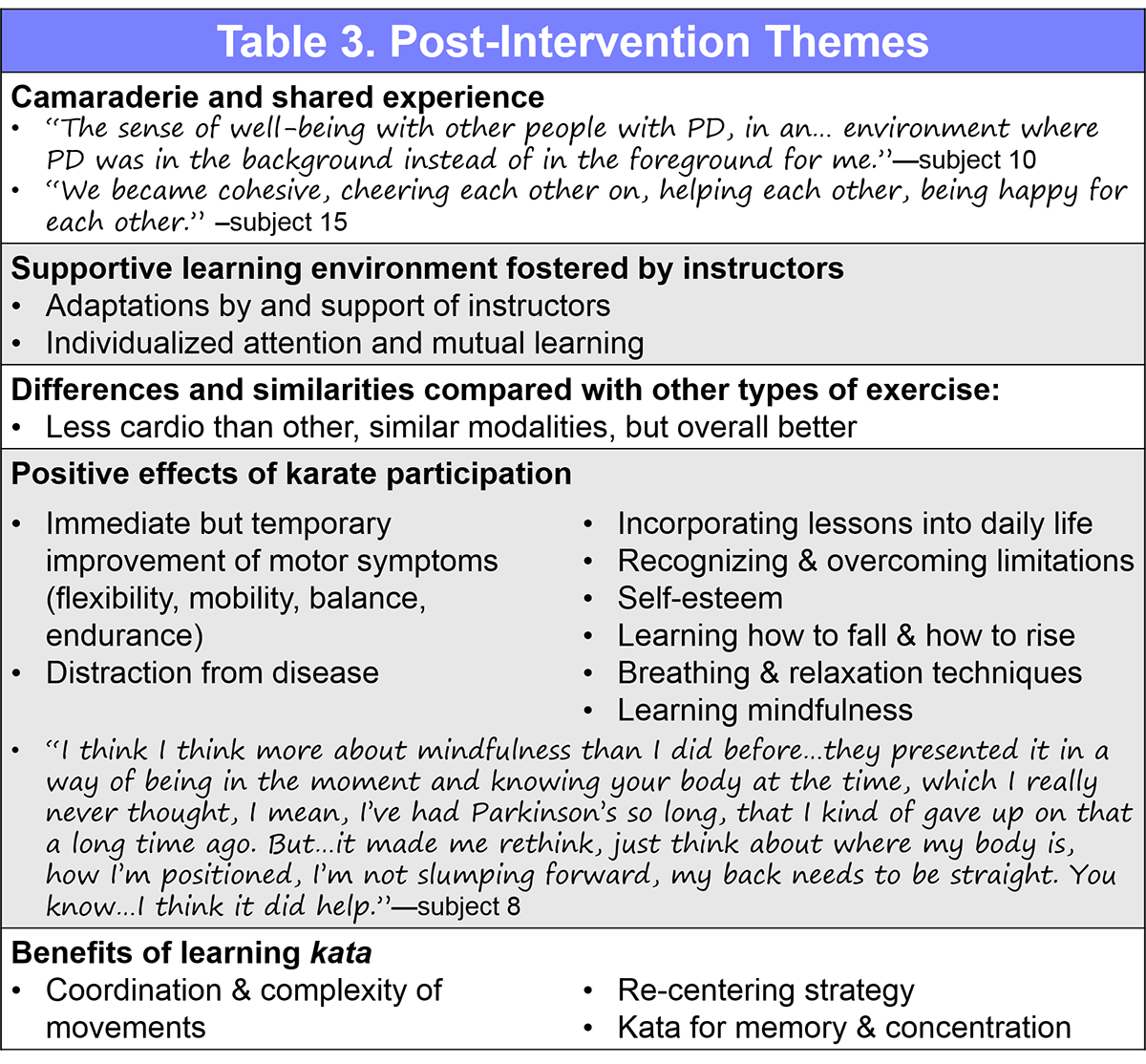Session Information
Date: Wednesday, September 25, 2019
Session Title: Non-Pharmacological Interventions
Session Time: 1:15pm-2:45pm
Location: Les Muses Terrace, Level 3
Objective: To investigate expectations regarding exercise, karate, and mindfulness in individuals with early- to middle-stage Parkinson’s disease (PD) prior to a community-based karate class, and post-intervention perceptions of change in mobility, wellbeing, and quality of life.
Background: Different exercise modalities benefit PD patients, including aerobic, resistance, and mindfulness-based activities. Karate incorporates these domains in a community-based class setting with progressive acquisition of skills and sequenced movements, which may improve mobility and wellbeing.
Method: PD patients participating in a 10-week, open label feasibility study of karate were invited to participate in a focus group prior to and following the karate course. The classes were twice weekly for one hour. Patients were included in a one-hour, pre-intervention focus group led by the PI (JF) exploring prior experience with exercise and expectations for the intervention. Post-intervention focus groups explored patient perceptions of changes in their balance, mobility, and overall wellbeing, whether the intervention met expectations, and opportunities for program improvement. Qualitative data were analyzed using a grounded theory approach.
Results: Fifteen participants (8 women), 93% at Hoehn & Yahr stage 2, with median age 68 years (range: 39-80) and PD duration 6 years (2-20), completed the pre- and post-intervention focus groups. Each group comprised 6-9 individuals, the majority endorsing prior experience with and positive attitude towards exercise. Participants expressed goals of improving balance and mindfulness. Following the intervention, participants felt karate had been beneficial for movement, breathing, and wellbeing. Additional themes were camaraderie and encouragement from the instructors and each other. All participants planned to continue their karate practice and recommend it to others.
Conclusion: A twice weekly karate class tailored to individuals with PD yielded subjective improvements in balance, mobility, and general wellbeing, as well as unexpected camaraderie. There was enthusiasm for continued participation, highlighting the need for further long-term, controlled studies of this promising intervention. This work has been accepted for presentation at AAN 2019 and WPC 2019.
To cite this abstract in AMA style:
J. Fleisher, C. Niemet, B. Sennott, M. Lee, C. Whitelock, M. Sanghvi, J. Chodosh, D. Hall, C. Comella. KICK OUT PD: Qualitative Analysis of Expectations and Outcomes in a Pilot Study of a Parkinson’s Disease Karate Intervention [abstract]. Mov Disord. 2019; 34 (suppl 2). https://www.mdsabstracts.org/abstract/kick-out-pd-qualitative-analysis-of-expectations-and-outcomes-in-a-pilot-study-of-a-parkinsons-disease-karate-intervention/. Accessed April 2, 2025.« Back to 2019 International Congress
MDS Abstracts - https://www.mdsabstracts.org/abstract/kick-out-pd-qualitative-analysis-of-expectations-and-outcomes-in-a-pilot-study-of-a-parkinsons-disease-karate-intervention/



